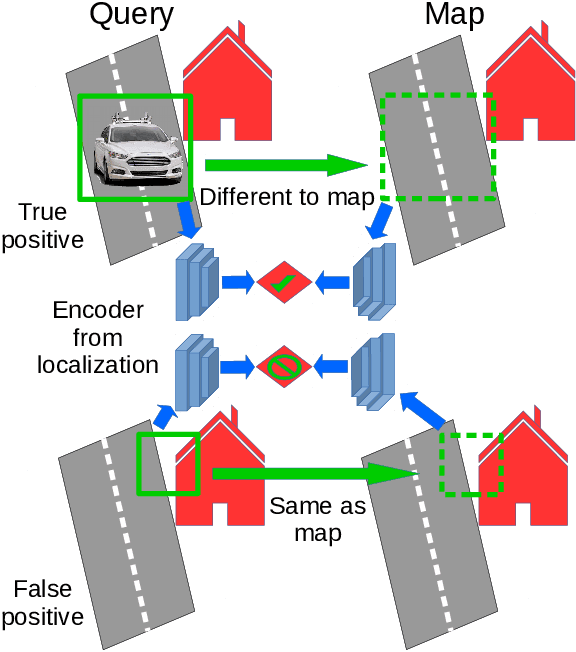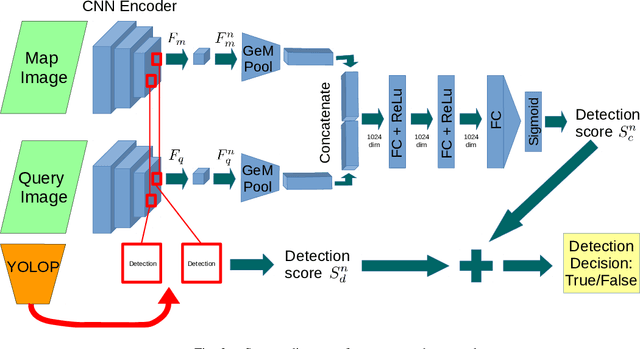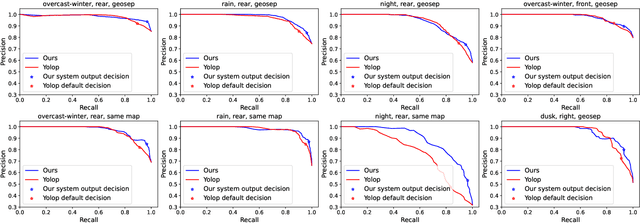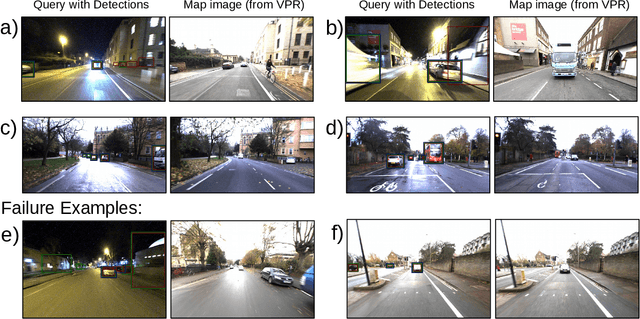DisPlacing Objects: Improving Dynamic Vehicle Detection via Visual Place Recognition under Adverse Conditions
Paper and Code
Jun 30, 2023



Can knowing where you are assist in perceiving objects in your surroundings, especially under adverse weather and lighting conditions? In this work we investigate whether a prior map can be leveraged to aid in the detection of dynamic objects in a scene without the need for a 3D map or pixel-level map-query correspondences. We contribute an algorithm which refines an initial set of candidate object detections and produces a refined subset of highly accurate detections using a prior map. We begin by using visual place recognition (VPR) to retrieve a reference map image for a given query image, then use a binary classification neural network that compares the query and mapping image regions to validate the query detection. Once our classification network is trained, on approximately 1000 query-map image pairs, it is able to improve the performance of vehicle detection when combined with an existing off-the-shelf vehicle detector. We demonstrate our approach using standard datasets across two cities (Oxford and Zurich) under different settings of train-test separation of map-query traverse pairs. We further emphasize the performance gains of our approach against alternative design choices and show that VPR suffices for the task, eliminating the need for precise ground truth localization.
 Add to Chrome
Add to Chrome Add to Firefox
Add to Firefox Add to Edge
Add to Edge